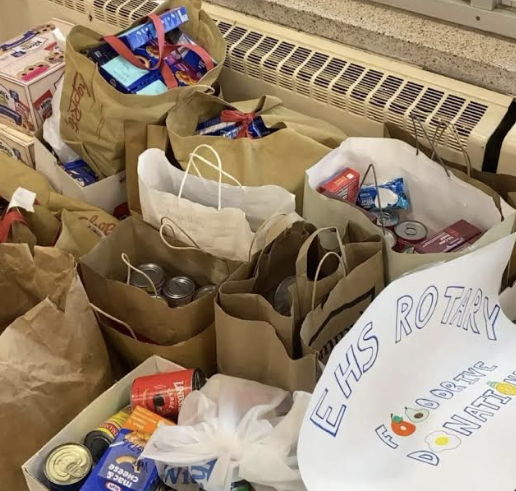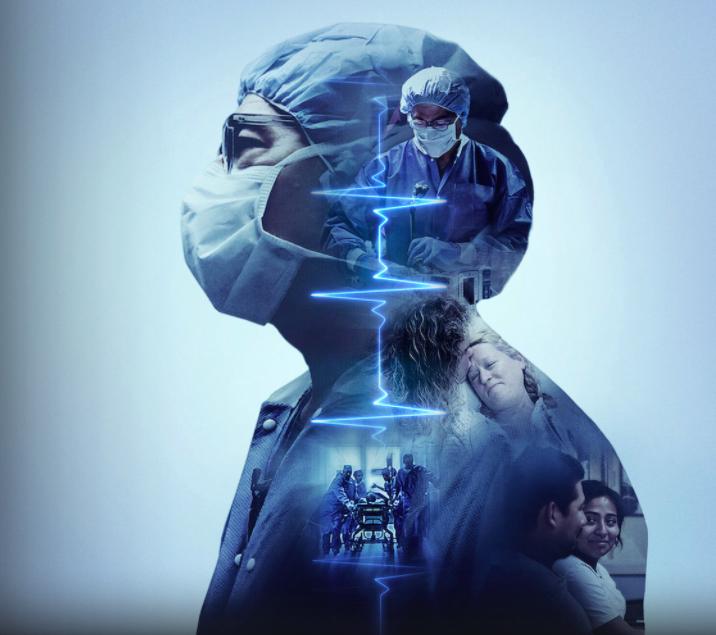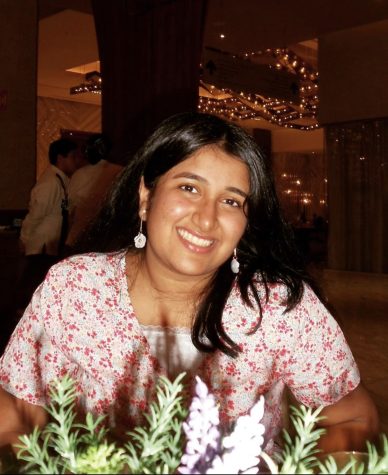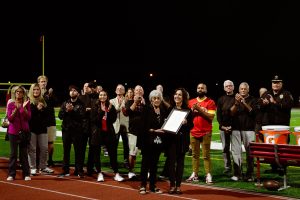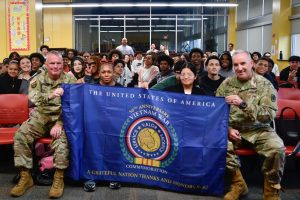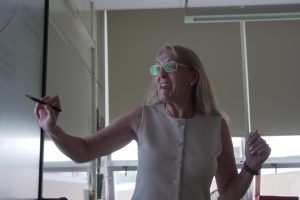Eagle Exclusive: an Insight into Frontline Workers During the Pandemic
November 25, 2020
In June, Netflix debuted a new documentary series entitled Lenox Hill, which follow the lives of the staff of Lenox Hill Hospital in Manhattan. A special episode of season 1, titled “Pandemic,” explains the sacrifices healthcare workers had to make to protect their families, including long shifts and weeks away from home. The Eagle’s Eye was granted an exclusive interview with Dr. Randy D’Amico, one of the frontline workers featured on the series, who has been at the forefront of fighting the virus since its inception.
In late December of 2019, a respiratory disease first emerged in Wuhan, China. Doctor Lin Wenliang, the Chinese ophthalmologist who worked at Wuhan Central Hospital, is credited with initially describing the illness that is similar to Severe Acute Respiratory Syndrome (SARS). The illness has since been identified as COVID-19—the global killer of just over one million, two hundred thousand people.
Dr. D’Amico, a neurosurgeon, graduate of Rutgers NJMS, and a trainee from Columbia, described his struggles with keeping positive when patients were flooding the ER.
“I am excited by the challenge, but with that, I am devastated by the failure,” Dr. D’Amico said via Instagram direct message. Failure was one of the biggest challenges he had to face in the Neuro ICU, as he had patients fill up beds with what at the time was an unknown lethal virus.
The best way to manage pandemics such as COVID-19 is with robust emergency preparations prior to the disaster; yet in many cases, the situation can get turbulent. The ethical argument regarding prioritizing healthcare workers on the frontline becomes threefold. The amount of pressure on these individuals is unprecedented, and the already-strained healthcare professionals have new obstacles to face with every passing minute.
“The biggest obstacles vary from day to day,” said D’Amico.
He and many other healthcare professionals wake up every morning completely unaware of the challenges that would be brought forth to them. In a period of chaos and uncertainty, it is up to the frontline workers to portray a calm attitude in order to provide stability for their patients.
“The pandemic added a lot of stress. The practice I had built was shut down,” D’Amico said. “I was concerned about my health and my family’s health as I was the most exposed being in a hospital all day long. I was concerned that everything I had built would crumble. I was terrified for the patients who were pouring into the ER. It was a mess.”
“I went to work because this is what I do. It’s not just a job. It’s my life. People need us.”
DR. RANDY D’AMICO
“Working in this pandemic can take a toll on one’s mental health, especially for frontline workers. Many have had to throw themselves into work, but overworking has both physical and mental detriments,” said D’Amico. “As humans, we are devastated by failure. We work hard and then let one incident let us down.”
With all the anxiety and stress, Dr. D’Amico mentions how easy it is reach a state of demotivation and annoyance. However, in times like these stepping back and reevaluating goals and aspirations is key when proceeding forward.
For some, the mere feeling of success and accomplishment convinces them to go forward while for others it is the satisfaction of doing what pleases them. Emotions, relationships, and necessity helps D’Amico go to work everyday.
Family is a key motivation in Dr. D’Amico’s life as they encourage him throughout the whole COVID-19 experience and in general to be a better doctor. Searching for answers within the experience, he reminds himself that he is not the only healthcare worker going through this pandemic and uses deep breathing as an exercise to keep himself positive. Completing years of education and practice, trusting his training is fundamental and helps him recall that he is an exceptional neurosurgeon.
D’Amico values sharing his experiences openly and not keeping them bottled up inside, as someone could offer valuable advice at any stage in life. When explicitly asked what prompted him to go to work and perform his level-best every day, the answer was simple.
“I went to work because this is what I do. It’s not just a job. It’s my life. People need us.”
During unyielding times, everyone tries their best to play an integral role in the overall flourishment of society. However, the COVID-19 pandemic has highlighted the sacrifices, stresses, and anxieties of frontline workers. A valuable takeaway from this virus is that life is unpredictable and savoring meaningful moments is most important.
“At the end of your life,” D’Amico said, “you lived a life, and we all die.”
“Make it a good life.”






